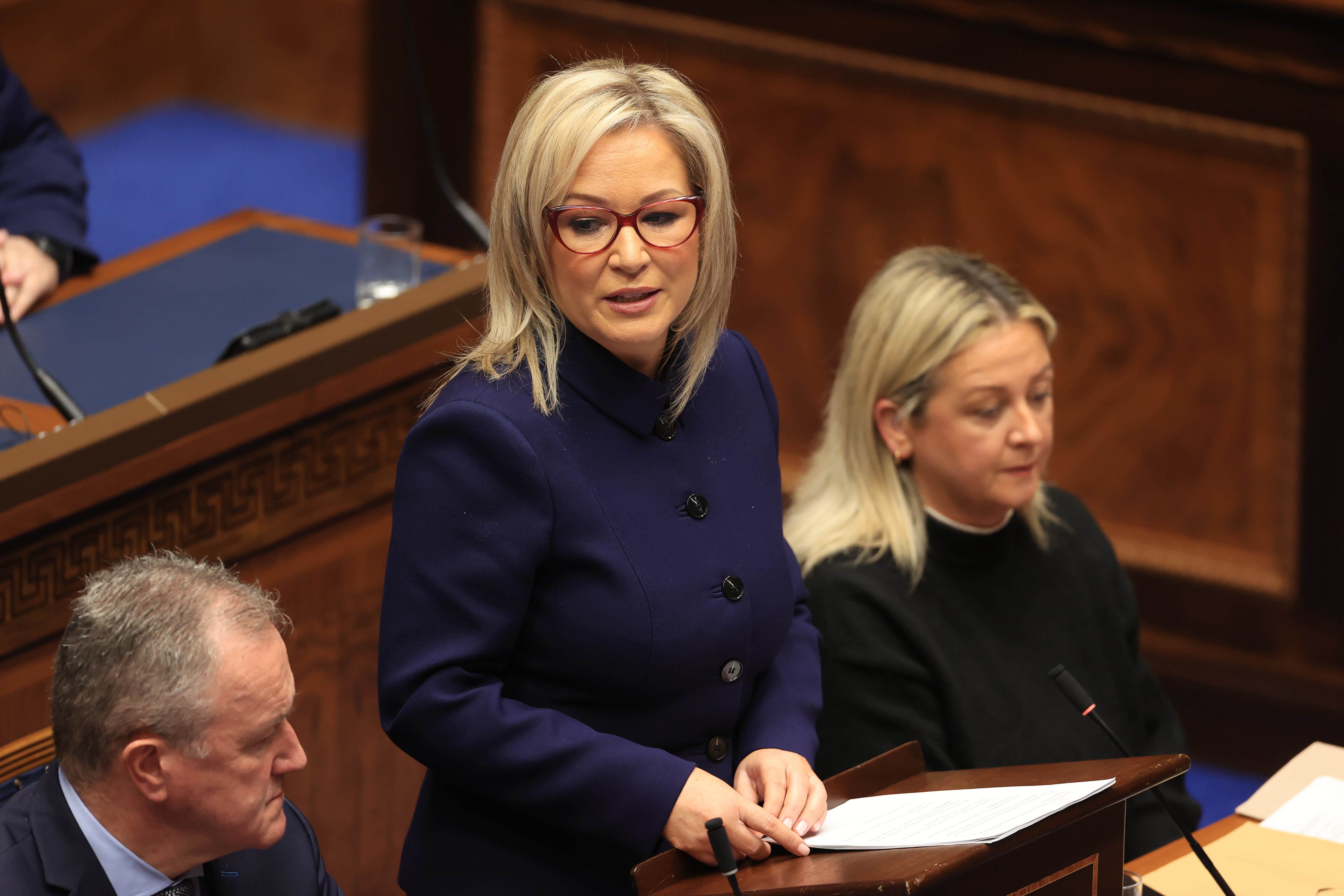Northern Ireland’s leaders have made history by looking to the future
Michelle O’Neill’s appointment as the first minister shows that the power of hope can sometimes win through in politics, writes John Rentoul


At the eighth attempt, the Democratic Unionist Party, the party of “No” and “Never”, finally said “Yes”. The Northern Ireland assembly elected a speaker, which meant that devolved government was back in business. Seven times since the assembly was suspended two years ago, the DUP said “No”. Today it nominated Edwin Poots, who had briefly been its leader during the party’s post-Brexit turmoil, as the impartial chair of the assembly.
Sir Jeffrey Donaldson introduced the day’s momentous events by declaring: “While we do not forget our past, we also look to our future.”
There is never any chance in the politics of Northern Ireland of any of the participants forgetting their past. All the speeches today referred to it, but they also, finally, looked to the future.
Sir Jeffrey himself, who walked out of the talks on the morning of Good Friday in 1998, the day that a settlement was reached, is only the latest leader in Northern Ireland to have made that journey from “No” to “Yes”. He was one of David Trimble’s negotiators for the Ulster Unionist Party, and walked out because he thought the deal negotiated by Tony Blair conceded too much to what was then known as Sinn Fein/IRA.
He defected from the UUP to the DUP five years later, so he was there when Ian Paisley Sr, the Godfather of No, said Yes to working with Sinn Fein in 2007.
Now it is Sir Jeffrey’s turn. He too has negotiated a deal that many thought was impossible, and that some incarnations of his former self might think has conceded too much to Sinn Fein, but he has made it work and once again Northern Ireland has witnessed a historic moment.
Each time, of course, it is slightly less historic, but the power of hope, of former adversaries working together for the future, still retains its emotional punch.
It took a great deal for the DUP to accept a Sinn Fein first minister – even more so, probably, because the rules that led to the leader of the largest party taking that office were devised by the DUP itself, assuming that it would always be their beneficiary.
Yet Michelle O’Neill rose to the moment. “A moment of equality and a moment of progress,” she called it. There was no hint of triumphalism in her words, and no mention of Sinn Fein’s goal of a united Ireland. There was even a note of contrition for the terrible things the IRA did in its campaign of violence: “I am sorry for all the lives lost during the conflict. Without exception.”
She remembered the more recent past. At the time of the Good Friday/Belfast agreement, she was a 20-year-old mother: “I remember vividly the sense of hope and optimism.” Now she was looking to the future: “We must make power sharing work because collectively, we are charged with leading and delivering for all our people, for every community.”
She is good at the rhetoric of unity.
She was followed by Emma Little-Pengelly, the DUP deputy first minister, of equal formal authority, but of symbolically subordinate status. “There can be no dominating from one to the other but a new approach,” she said.
She too could not forget the past, recounting how, as a child of 11, she stepped outside her Markethill home one August to the devastation of an IRA bomb. But she too used it to look to the future: “The experience of my childhood gave me a drive and desire to make a different future, not only for myself but to do all I can to ensure a better future for us all.”
Little-Pengelly was an MP in the House of Commons between 2017 and 2019. She also rose to the level of events: “We are all born equal; the people who look on this city today demand us to work together.”
Northern Ireland’s progress towards equality and a better future has never been a straight line, and each time progress is restored after a step back requires exceptional leadership from all concerned – but today we saw it again.
Join our commenting forum
Join thought-provoking conversations, follow other Independent readers and see their replies
Comments
Bookmark popover
Removed from bookmarks